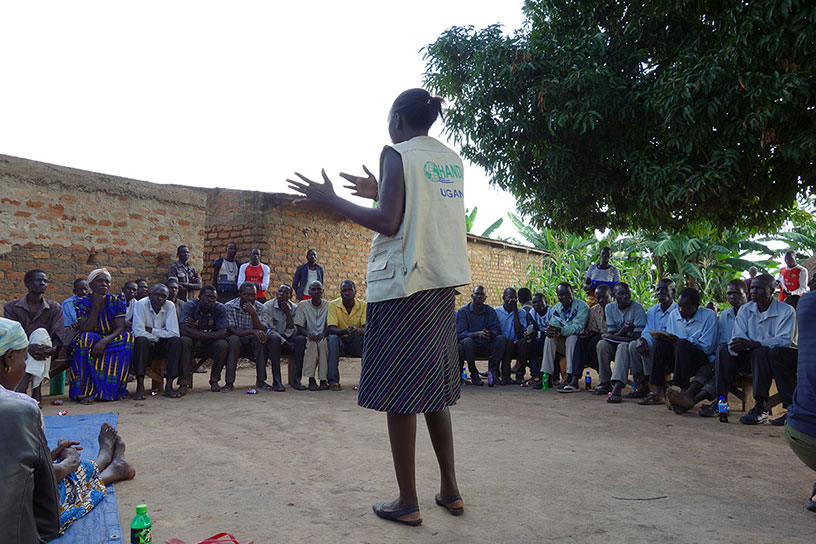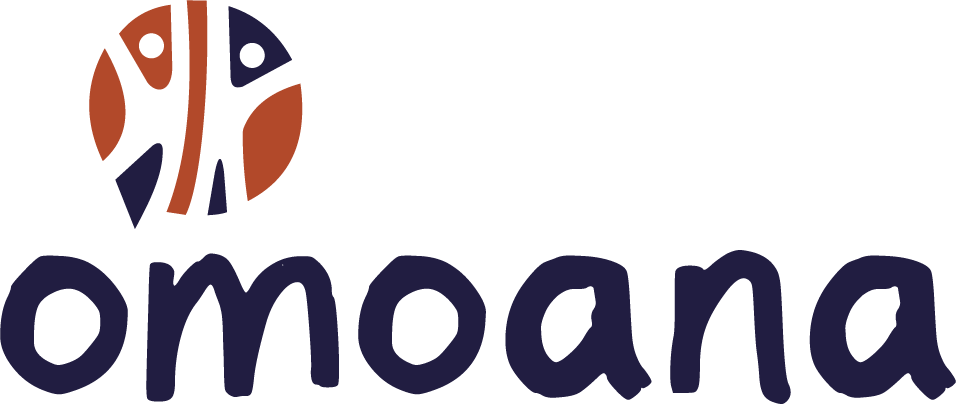Since January 2018, with the support of Omoana, Handle Uganda has been implementing a project to prevent gender-based violence. This helps to foster a family dynamic that is conducive to children’s well-being. Here is a description…

HANDLE Uganda is a small local NGO based in Gulu, northern Uganda, a region still coping with the devastating consequences of a twenty-year civil war. The organization has begun a three-year project in the Nwoya district to combat gender-based violence (GBV), which was widespread in northern Uganda during and after the conflict. This ambitious project is developing a multi-dimensional, holistic approach to tackling GBV at individual, family, community and local government levels.
In addition to various types of physical violence, GBV also takes the form of unequal access to land ownership and to different means of production and sources of income. To remedy this situation, HANDLE promotes women’s rights and equality with men by providing 300 women living in poverty with support in setting up village savings and credit associations (AVEC) to boost their financial literacy. In addition, the organization provides training and support in the creation and management of micro-enterprises.
The aim is to strengthen women’s financial independence in relation to men, so that they can become more autonomous and move towards a position of parity.
These women are also informed about their rights and what defines GBV, so that they can recognize the various forms of discrimination and violations against them. They receive information on what they can do if they or women around them are victims of GBV. They are also provided with the resources they need to access legal and medical services. To this end, HANDLE has a legal representative who supports victims by directing them to the appropriate services for the most serious cases, and by providing a mediation service for families in cases of marital disputes.
HANDLE also provides support in the event of land disputes, to limit the dramatic turn these often take. A mediation service is available to families and communities affected by such problems, as well as legal support if required. While denial of access to property is in itself an infringement of women’s rights, it often degenerates into physical violence, particularly in a population still traumatized by civil war. It is therefore important not to overlook this issue.
With men too…
The project is not limited to women, however. HANDLE also trains groups of male role models, made up of men of varying levels of influence and social background, from farmers to Rwotkweris (clan leaders). Three groups of thirty men each receive intensive training to act as vectors of change within their villages and communities. They learn about GBV, women’s rights and what they can do to influence and educate members of their community.
Each man is a role model for his family and neighbors, and works intensively with ten families in conflict situations, with a particular focus on GBV. The role models also receive basic training in counseling and conflict management in cases of GBV. They are also provided with bicycles to help them carry out their community mobilization and mediation duties.
HANDLE also works closely with local government, police and other stakeholders to strengthen its initiatives. In conjunction with the relevant authorities, the organization carries out important community awareness-raising work through cultural events. On these occasions, the various leaders speak out against GBV and inform their communities of its harmful consequences. Police forces, for their part, are trained on how to recognize cases of GBV and report the crimes committed, as well as on the importance of reporting cases as quickly as possible and preserving evidence, especially in cases of sexual violence.
HANDLE is looking forward to working with various partners and beneficiaries to improve the quality of life of women, men and children in their communities and help reduce GBV in the region.
Emma McGeachy


